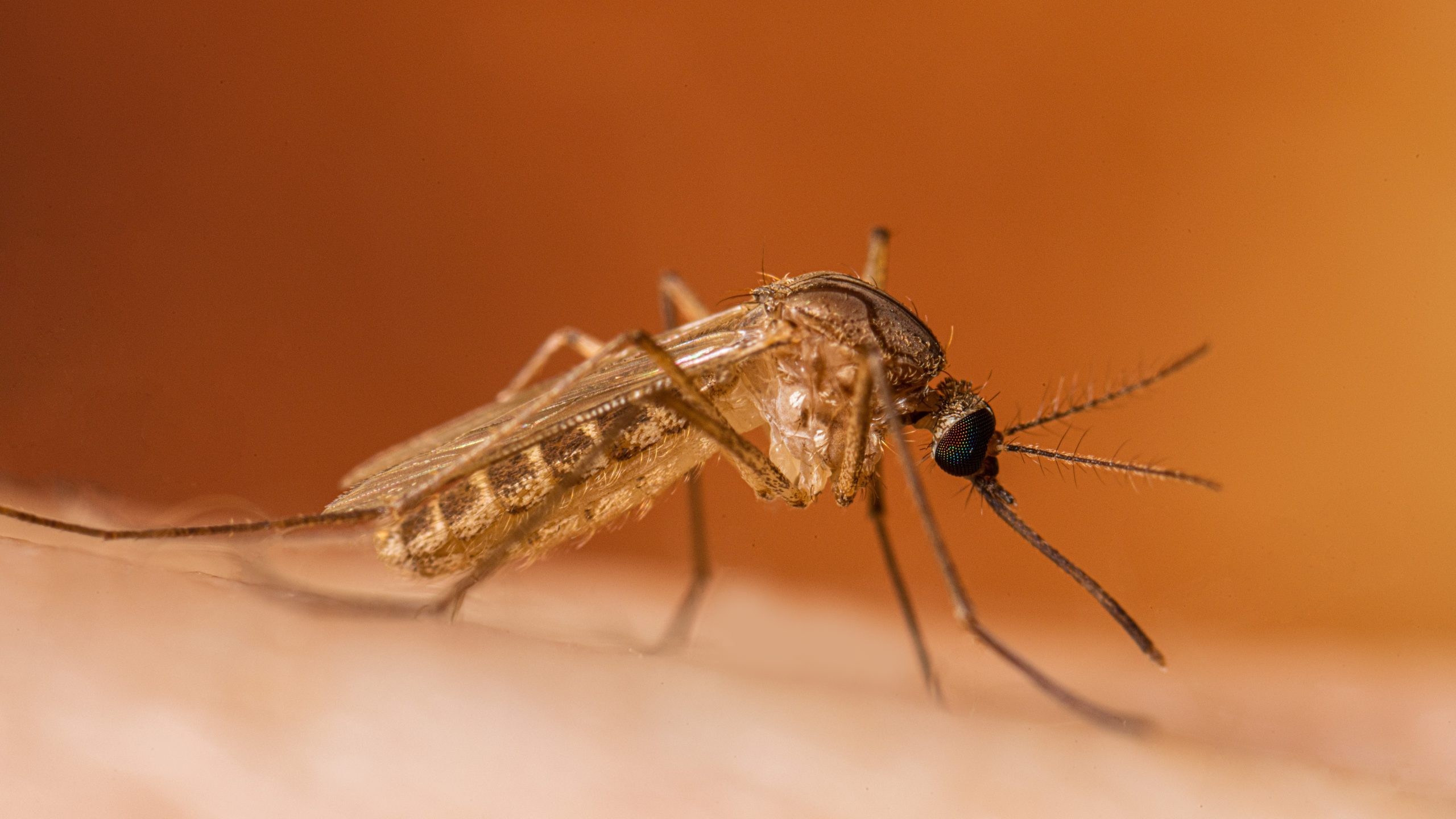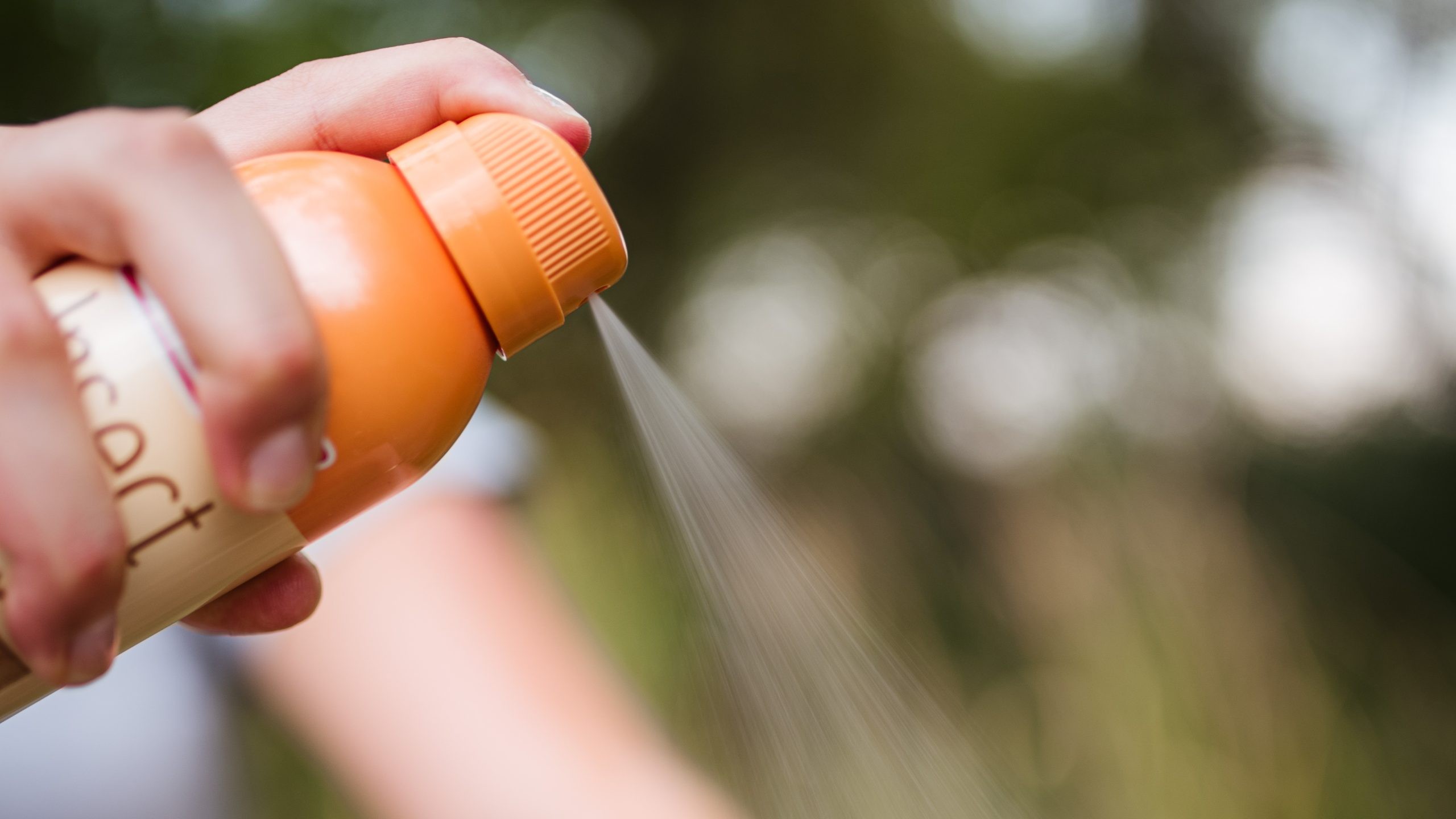West Nile virus is a mosquito-borne illness that can cause a range of symptoms, from mild flu-like discomfort to severe neurological disease. At WHAT.EDU.VN, we aim to provide you with clear, accessible information about West Nile virus infection, its causes, prevention strategies, and available treatments. Understand mosquito bite prevention, disease transmission, and diagnostic testing.
1. Understanding West Nile Virus: An Introduction
West Nile Virus (WNV) is a single-stranded RNA virus belonging to the Flaviviridae family, which also includes viruses like Zika, dengue, and yellow fever. It’s primarily transmitted to humans through the bite of infected mosquitoes. These mosquitoes become infected when they feed on infected birds, which serve as the virus’s natural reservoir. Understanding the virus’s lifecycle and transmission methods is crucial for effective prevention.
The virus was first isolated in 1937 in the West Nile district of Uganda. It remained relatively obscure until the 1990s when it began to spread more widely, causing outbreaks in Europe, the Middle East, and eventually North America. The first confirmed cases in the United States were reported in New York City in 1999. Since then, it has spread across the continental U.S. and Canada.
2. How West Nile Virus Spreads: The Transmission Cycle
The transmission cycle of West Nile Virus is complex, involving mosquitoes, birds, and mammals, including humans and horses. Mosquitoes, particularly those of the Culex species, are the primary vectors of the virus. They acquire the virus by feeding on infected birds, such as crows, blue jays, and robins. These birds can carry the virus without showing symptoms, acting as natural reservoirs.
Once a mosquito is infected, it can transmit the virus to humans and other animals through its bite. The virus multiplies within the mosquito’s salivary glands, allowing it to be transmitted during subsequent blood meals. Humans are considered “dead-end” hosts because they usually don’t develop high enough viral loads to infect other mosquitoes. This means that human-to-human transmission is rare and typically occurs through blood transfusions, organ transplants, or from mother to fetus during pregnancy or delivery.
2.1 Mosquito Vectors and Breeding Habitats
Different species of mosquitoes can transmit West Nile Virus, but Culex mosquitoes are the most common vectors. These mosquitoes thrive in urban and suburban environments, breeding in stagnant water sources such as:
- Abandoned swimming pools
- Clogged gutters
- Old tires
- Bird baths
- Any container that can hold water
Controlling mosquito populations by eliminating these breeding sites is a crucial aspect of West Nile Virus prevention.
2.2 Role of Birds in Virus Transmission
Birds play a critical role in the West Nile Virus transmission cycle. Many bird species, particularly those in the corvid family (crows, ravens, and jays), are highly susceptible to infection and can develop high viral loads. When mosquitoes feed on these infected birds, they acquire the virus and become capable of transmitting it to humans and other animals.
The virus can spread over long distances as birds migrate, introducing the virus to new areas. Monitoring bird populations and testing dead birds for West Nile Virus can provide valuable insights into the virus’s prevalence and geographic distribution.
3. West Nile Virus Symptoms: What to Look For
Most people infected with West Nile Virus don’t develop any symptoms. About 80% of those infected are asymptomatic, meaning they don’t experience any noticeable signs of illness. However, for the remaining 20%, the virus can cause a range of symptoms, from mild flu-like illness to severe neurological complications.
3.1 Mild Symptoms of West Nile Virus
About 20% of people infected with West Nile Virus will develop West Nile fever, a mild illness characterized by the following symptoms:
- Fever
- Headache
- Body aches
- Fatigue
- Skin rash (occasionally)
- Swollen lymph nodes (occasionally)
These symptoms typically last for a few days to several weeks, and most people recover completely without medical intervention.
3.2 Severe Symptoms of West Nile Virus
In less than 1% of cases, West Nile Virus can cause severe neurological illness, including:
- West Nile encephalitis: Inflammation of the brain.
- West Nile meningitis: Inflammation of the membranes surrounding the brain and spinal cord.
- West Nile poliomyelitis: A polio-like syndrome that can cause paralysis.
Symptoms of severe West Nile Virus infection can include:
- High fever
- Severe headache
- Stiff neck
- Disorientation
- Tremors
- Seizures
- Muscle weakness
- Vision loss
- Numbness
- Paralysis
- Coma
Severe West Nile Virus infection can be life-threatening and may require hospitalization and intensive care.
3.3 Risk Factors for Severe Disease
Certain individuals are at higher risk of developing severe West Nile Virus infection:
- Older adults: People over the age of 60 are more likely to develop severe illness.
- People with weakened immune systems: Individuals with conditions such as HIV/AIDS, cancer, or organ transplant recipients are at increased risk.
- People with chronic medical conditions: Those with diabetes, hypertension, or kidney disease are more susceptible to severe outcomes.
It’s essential for individuals in these high-risk groups to take extra precautions to prevent mosquito bites.
4. Diagnosing West Nile Virus: Tests and Procedures
Diagnosing West Nile Virus infection can be challenging because the symptoms are similar to those of other viral illnesses. If you suspect you have West Nile Virus, it’s essential to consult a healthcare provider for proper evaluation and testing.
4.1 When to See a Doctor
Seek medical attention if you develop symptoms such as:
- High fever
- Severe headache
- Stiff neck
- Disorientation
- Muscle weakness
- Any other neurological symptoms
These symptoms could indicate a severe West Nile Virus infection or another serious medical condition that requires prompt treatment.
4.2 Diagnostic Tests
Several diagnostic tests can detect West Nile Virus infection:
- Blood tests: These tests look for antibodies to the virus in your blood. Antibodies are proteins produced by the immune system to fight off infection. The presence of West Nile Virus antibodies indicates that you have been infected with the virus at some point.
- Cerebrospinal fluid (CSF) tests: If you have symptoms of encephalitis or meningitis, your doctor may order a spinal tap to collect a sample of CSF. This fluid is tested for the presence of West Nile Virus antibodies or the virus itself.
- Polymerase chain reaction (PCR) test: This test can detect the virus’s genetic material (RNA) in blood or CSF samples. PCR is highly sensitive and can identify the virus early in the infection.
The choice of diagnostic test depends on the stage of the illness and the symptoms present.
5. West Nile Virus Treatment: Managing the Infection
There is no specific antiviral treatment for West Nile Virus infection. Treatment focuses on supportive care to relieve symptoms and prevent complications.
5.1 Supportive Care
Supportive care measures include:
- Rest: Getting plenty of rest can help your body recover.
- Fluids: Drinking plenty of fluids can prevent dehydration.
- Pain relievers: Over-the-counter pain relievers like acetaminophen or ibuprofen can help reduce fever and relieve headache and muscle aches.
In severe cases, hospitalization may be necessary for:
- Intravenous fluids: To prevent dehydration.
- Pain management: To relieve severe pain.
- Respiratory support: If you have difficulty breathing.
- Prevention of secondary infections: Such as pneumonia.
5.2 Long-Term Effects and Rehabilitation
Some people who develop severe West Nile Virus infection may experience long-term neurological problems, such as:
- Muscle weakness
- Fatigue
- Memory loss
- Difficulty concentrating
- Tremors
- Paralysis
Rehabilitation therapies, such as physical therapy, occupational therapy, and speech therapy, can help individuals recover from these long-term effects and improve their quality of life.
6. Preventing West Nile Virus: Protecting Yourself and Your Community
Preventing West Nile Virus infection involves reducing your exposure to mosquito bites and controlling mosquito populations.
6.1 Personal Protection Measures
- Use insect repellent: Apply insect repellent containing DEET, picaridin, IR3535, oil of lemon eucalyptus (OLE), para-menthane-diol (PMD), or 2-undecanone to exposed skin and clothing. Follow the instructions on the product label.
- Wear long sleeves and pants: When possible, wear long sleeves and pants when outdoors, especially during dawn and dusk when mosquitoes are most active.
- Avoid peak mosquito hours: Limit your time outdoors during dawn and dusk.
- Use mosquito netting: Use mosquito netting over beds and strollers, especially in areas with high mosquito populations.
- Repair or replace screens: Make sure your windows and doors have screens that are in good repair to keep mosquitoes out.
6.2 Mosquito Control Measures
- Eliminate standing water: Empty standing water from containers such as flower pots, buckets, old tires, and bird baths.
- Clean gutters: Clear clogged gutters to prevent water from accumulating.
- Maintain swimming pools: Keep swimming pools clean and properly chlorinated.
- Report mosquito problems: Contact your local mosquito control agency to report mosquito problems in your area.
6.3 Community-Level Prevention Programs
Public health agencies often implement community-level mosquito control programs to reduce mosquito populations and prevent West Nile Virus transmission. These programs may include:
- Mosquito surveillance: Monitoring mosquito populations to track the spread of West Nile Virus.
- Larviciding: Applying insecticides to standing water to kill mosquito larvae.
- Adulticiding: Spraying insecticides to kill adult mosquitoes.
- Public education campaigns: Educating the public about West Nile Virus prevention.
7. West Nile Virus and Animals: Impact on Horses and Other Species
West Nile Virus can also infect animals, particularly horses and birds.
7.1 West Nile Virus in Horses
Horses are susceptible to West Nile Virus infection, and the disease can be severe or even fatal. Symptoms of West Nile Virus in horses include:
- Fever
- Muscle weakness
- Incoordination
- Depression
- Head pressing
- Seizures
- Paralysis
Vaccination is available for horses to protect them against West Nile Virus. Consult with your veterinarian about vaccinating your horse.
7.2 West Nile Virus in Birds
Many bird species are susceptible to West Nile Virus infection, and the virus can cause high mortality rates in some bird populations, particularly crows and blue jays. Monitoring bird populations and testing dead birds for West Nile Virus can provide valuable information about the virus’s prevalence and geographic distribution.
8. West Nile Virus: Data, Maps, and Surveillance
Public health agencies track West Nile Virus cases and mosquito activity to monitor the spread of the virus and implement prevention measures.
8.1 CDC Surveillance Data
The Centers for Disease Control and Prevention (CDC) collects and reports data on West Nile Virus cases in the United States. This data includes:
- Number of human cases
- Geographic distribution of cases
- Severity of illness
- Number of deaths
- Mosquito infection rates
This information is used to track trends, identify high-risk areas, and inform public health interventions.
8.2 Geographic Distribution of West Nile Virus
West Nile Virus has been reported in all continental U.S. states. The risk of infection varies depending on the region, with some areas experiencing higher levels of mosquito activity and virus transmission.
8.3 Importance of Public Health Surveillance
Public health surveillance is crucial for detecting and responding to West Nile Virus outbreaks. By monitoring mosquito populations, testing dead birds, and tracking human cases, public health agencies can:
- Identify areas at high risk of transmission
- Implement targeted mosquito control measures
- Alert the public about the risk of infection
- Provide guidance on prevention strategies
9. Current Research and Future Directions for West Nile Virus
Research on West Nile Virus is ongoing, with efforts focused on:
- Developing new vaccines: Scientists are working to develop more effective vaccines for humans and animals.
- Improving diagnostic tests: Researchers are developing more sensitive and rapid diagnostic tests.
- Understanding virus transmission: Studies are underway to better understand how the virus is transmitted and how to prevent its spread.
- Developing antiviral therapies: Scientists are searching for antiviral drugs that can effectively treat West Nile Virus infection.
10. West Nile Virus FAQs: Your Questions Answered
Here are some frequently asked questions about West Nile Virus:
| Question | Answer |
|---|---|
| What is the incubation period for West Nile Virus? | The incubation period, the time between the mosquito bite and the onset of symptoms, typically ranges from 2 to 14 days. |
| Can you get West Nile Virus from another person? | Human-to-human transmission of West Nile Virus is rare. It can occur through blood transfusions, organ transplants, or from mother to fetus during pregnancy or delivery. |
| Is there a vaccine for West Nile Virus for humans? | Currently, there is no vaccine available for West Nile Virus for humans. However, vaccines are available for horses. |
| How long does immunity last after West Nile Virus infection? | It is believed that immunity to West Nile Virus is long-lasting after infection. However, more research is needed to determine the exact duration of immunity. |
| What is the risk of getting West Nile Virus? | The risk of getting West Nile Virus varies depending on geographic location, mosquito activity, and personal protection measures. Most people infected with the virus don’t develop any symptoms, and severe illness is rare. |
| Are there any long-term complications from West Nile Virus? | Some people who develop severe West Nile Virus infection may experience long-term neurological problems, such as muscle weakness, fatigue, memory loss, and difficulty concentrating. Rehabilitation therapies can help individuals recover from these long-term effects. |
| Is West Nile Virus a reportable disease? | Yes, West Nile Virus is a reportable disease in most states. Healthcare providers and laboratories are required to report confirmed cases to public health authorities. |
| What are the best ways to protect my pets from West Nile Virus? | Talk to your veterinarian about vaccinating your horses against West Nile Virus. For other pets, reduce their exposure to mosquitoes by keeping them indoors during dawn and dusk, eliminating standing water around your property, and using pet-safe mosquito repellents. |
| How do mosquito control programs decide when to spray for mosquitoes? | Mosquito control programs use surveillance data on mosquito populations and West Nile Virus activity to determine when and where to spray for mosquitoes. Spraying is typically targeted to areas with high mosquito populations and evidence of virus transmission. |
| Where can I find more information about West Nile Virus? | You can find more information about West Nile Virus from the Centers for Disease Control and Prevention (CDC), your local health department, and your healthcare provider. |




11. West Nile Virus in Specific Regions: A Global Perspective
While West Nile Virus is prevalent in North America, it also exists in other parts of the world. Understanding the regional variations can help travelers and healthcare providers be more vigilant.
11.1 Europe and the Mediterranean
West Nile Virus has been detected in several European countries, particularly in the Mediterranean region. Outbreaks have been reported in countries like Italy, Greece, Romania, and Serbia. The virus’s presence in Europe poses a risk to both residents and visitors, especially during the summer and autumn months when mosquito populations are highest.
11.2 Africa and the Middle East
West Nile Virus was first identified in Africa and remains a concern in many countries across the continent. The virus is also present in the Middle East, with cases reported in countries like Israel, Egypt, and Saudi Arabia. Understanding the local transmission patterns and risk factors is crucial for implementing effective prevention strategies in these regions.
11.3 Asia and Australia
While West Nile Virus is less common in Asia and Australia compared to other regions, cases have been reported in some countries. Surveillance and monitoring efforts are essential to detect and respond to any potential outbreaks in these areas. Travelers to these regions should take precautions to protect themselves from mosquito bites.
12. The Economic Impact of West Nile Virus: Costs and Consequences
West Nile Virus can have significant economic consequences, both for individuals and for society as a whole.
12.1 Healthcare Costs
The cost of treating West Nile Virus infection can be substantial, especially for individuals who develop severe neurological complications. Hospitalization, intensive care, rehabilitation therapies, and long-term care can all contribute to high healthcare expenses.
12.2 Lost Productivity
West Nile Virus infection can lead to lost productivity due to illness, hospitalization, and long-term disability. Individuals who are unable to work because of the virus may experience financial hardship.
12.3 Impact on Agriculture and Tourism
West Nile Virus can also affect agriculture and tourism. Outbreaks of the virus in horses can disrupt equestrian activities and impact the horse industry. The presence of the virus in a region can deter tourists from visiting, leading to economic losses for the tourism sector.
13. Addressing Misconceptions and Myths About West Nile Virus
Several misconceptions and myths surround West Nile Virus, which can lead to confusion and unnecessary anxiety.
13.1 Myth: West Nile Virus is Only a Problem in Rural Areas
Fact: West Nile Virus can be found in both rural and urban areas. Mosquitoes that transmit the virus can breed in a variety of environments, including urban areas with standing water.
13.2 Myth: Only Older People Get Seriously Ill from West Nile Virus
Fact: While older adults are at higher risk of developing severe illness, people of all ages can be affected by West Nile Virus. Anyone can develop severe neurological complications from the virus, although it is less common in younger individuals.
13.3 Myth: Mosquito Spraying is Dangerous and Ineffective
Fact: Mosquito spraying is a safe and effective way to control mosquito populations and prevent West Nile Virus transmission. Public health agencies use carefully selected insecticides that are approved for use and pose minimal risk to humans and the environment when applied properly.
13.4 Myth: Once You’ve Had West Nile Virus, You Can’t Get it Again
Fact: It is believed that immunity to West Nile Virus is long-lasting after infection. However, there have been rare reports of people being infected with the virus more than once.
14. West Nile Virus and Climate Change: A Growing Concern
Climate change is expected to have a significant impact on the spread and transmission of West Nile Virus.
14.1 Warmer Temperatures and Mosquito Activity
Warmer temperatures can extend the mosquito breeding season and increase mosquito populations. This can lead to a higher risk of West Nile Virus transmission.
14.2 Changes in Rainfall Patterns
Changes in rainfall patterns can also affect mosquito populations. Increased rainfall can create more breeding sites for mosquitoes, while droughts can concentrate mosquito populations in limited water sources.
14.3 Impact on Bird Migration
Climate change can also affect bird migration patterns, which can influence the spread of West Nile Virus to new areas.
15. West Nile Virus and Travel: Staying Safe While Abroad
If you’re planning to travel to an area where West Nile Virus is present, it’s essential to take precautions to protect yourself from mosquito bites.
15.1 Research Your Destination
Before you travel, research the risk of West Nile Virus in your destination. Check the CDC website or consult with your healthcare provider for information on the local transmission patterns and risk factors.
15.2 Pack Mosquito Repellent
Pack plenty of mosquito repellent containing DEET, picaridin, IR3535, oil of lemon eucalyptus (OLE), para-menthane-diol (PMD), or 2-undecanone.
15.3 Wear Protective Clothing
Wear long sleeves and pants when outdoors, especially during dawn and dusk.
15.4 Use Mosquito Netting
Use mosquito netting over beds and strollers, especially in areas with high mosquito populations.
16. Understanding West Nile Virus in Immunocompromised Individuals
Immunocompromised individuals, such as those with HIV/AIDS, cancer, or organ transplant recipients, are at higher risk of developing severe West Nile Virus infection.
16.1 Increased Risk of Severe Illness
Immunocompromised individuals are more likely to develop severe neurological complications from West Nile Virus, such as encephalitis, meningitis, and paralysis.
16.2 Importance of Prevention
It is especially important for immunocompromised individuals to take precautions to prevent mosquito bites.
16.3 Prompt Medical Attention
Immunocompromised individuals who develop symptoms of West Nile Virus should seek prompt medical attention.
17. The Role of Public Health Organizations in West Nile Virus Control
Public health organizations play a critical role in controlling West Nile Virus and protecting the public’s health.
17.1 Surveillance and Monitoring
Public health organizations conduct surveillance and monitoring to track West Nile Virus cases, mosquito populations, and virus activity.
17.2 Mosquito Control Programs
Public health organizations implement mosquito control programs to reduce mosquito populations and prevent virus transmission.
17.3 Public Education Campaigns
Public health organizations conduct public education campaigns to educate the public about West Nile Virus prevention.
17.4 Collaboration and Coordination
Public health organizations collaborate and coordinate with other agencies and organizations to control West Nile Virus.
18. Ethical Considerations in West Nile Virus Control
Ethical considerations are important in West Nile Virus control.
18.1 Balancing Public Health with Individual Rights
Mosquito control measures, such as spraying insecticides, can raise concerns about individual rights and environmental protection. Public health officials must balance the need to protect the public’s health with the need to respect individual rights and protect the environment.
18.2 Informed Consent
Informed consent is important when conducting research on West Nile Virus or implementing mosquito control measures that may affect individuals.
18.3 Equitable Access to Prevention and Treatment
Equitable access to prevention and treatment is important for all individuals, regardless of their socioeconomic status or geographic location.
19. West Nile Virus and Pregnancy: Risks and Prevention
West Nile Virus infection during pregnancy can pose risks to both the mother and the developing fetus.
19.1 Risk of Congenital Infection
West Nile Virus can be transmitted from mother to fetus during pregnancy or delivery, leading to congenital infection.
19.2 Potential Complications
Congenital West Nile Virus infection can cause serious complications, such as neurological damage and developmental delays.
19.3 Importance of Prevention
Pregnant women should take extra precautions to prevent mosquito bites.
19.4 Consult with Healthcare Provider
Pregnant women who develop symptoms of West Nile Virus should consult with their healthcare provider.
20. Emerging Technologies in West Nile Virus Research and Control
Emerging technologies are playing an increasingly important role in West Nile Virus research and control.
20.1 Advanced Surveillance Techniques
Advanced surveillance techniques, such as drone-based mosquito monitoring and genetic sequencing of viruses, are helping to improve our understanding of West Nile Virus transmission.
20.2 Novel Mosquito Control Strategies
Novel mosquito control strategies, such as genetically modified mosquitoes and Wolbachia-based mosquito control, are being developed to reduce mosquito populations and prevent virus transmission.
20.3 Artificial Intelligence and Machine Learning
Artificial intelligence and machine learning are being used to predict West Nile Virus outbreaks and optimize mosquito control efforts.
West Nile virus can be a serious concern, but with the right knowledge and precautions, you can significantly reduce your risk of infection. Remember to use insect repellent, wear protective clothing, and eliminate standing water around your home. Stay informed about the latest developments in West Nile virus research and control, and consult with your healthcare provider if you have any concerns.
Do you have more questions about West Nile Virus or other health concerns? Don’t hesitate to ask! At WHAT.EDU.VN, we’re here to provide you with fast, free answers from knowledgeable sources. Contact us today at 888 Question City Plaza, Seattle, WA 98101, United States or WhatsApp: +1 (206) 555-7890. Visit our website at what.edu.vn to submit your questions and get the answers you need. We are committed to providing accessible and reliable information to empower you to make informed decisions about your health and well-being.
